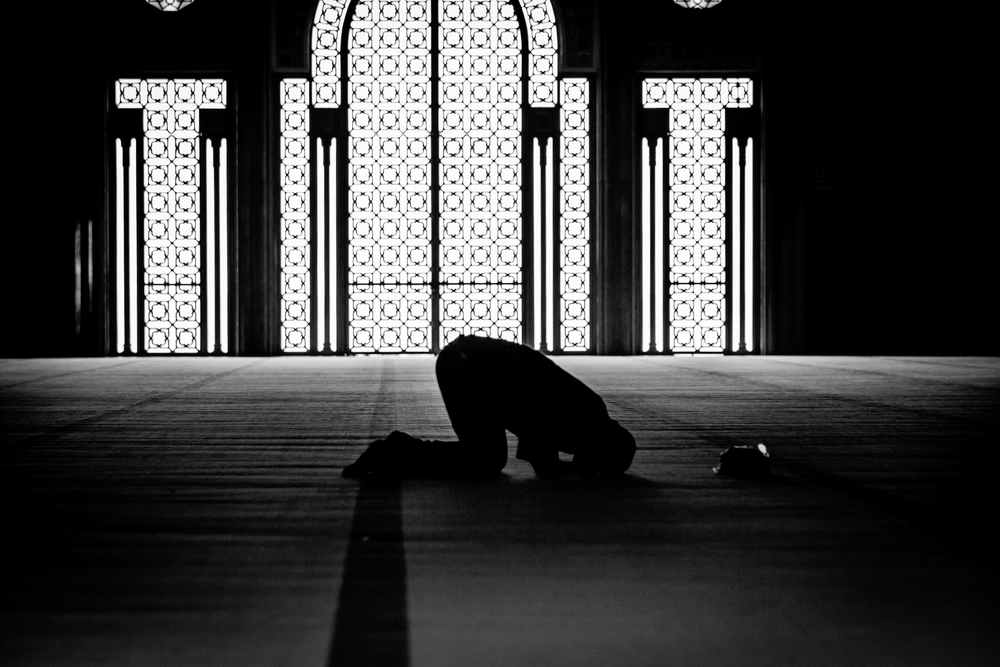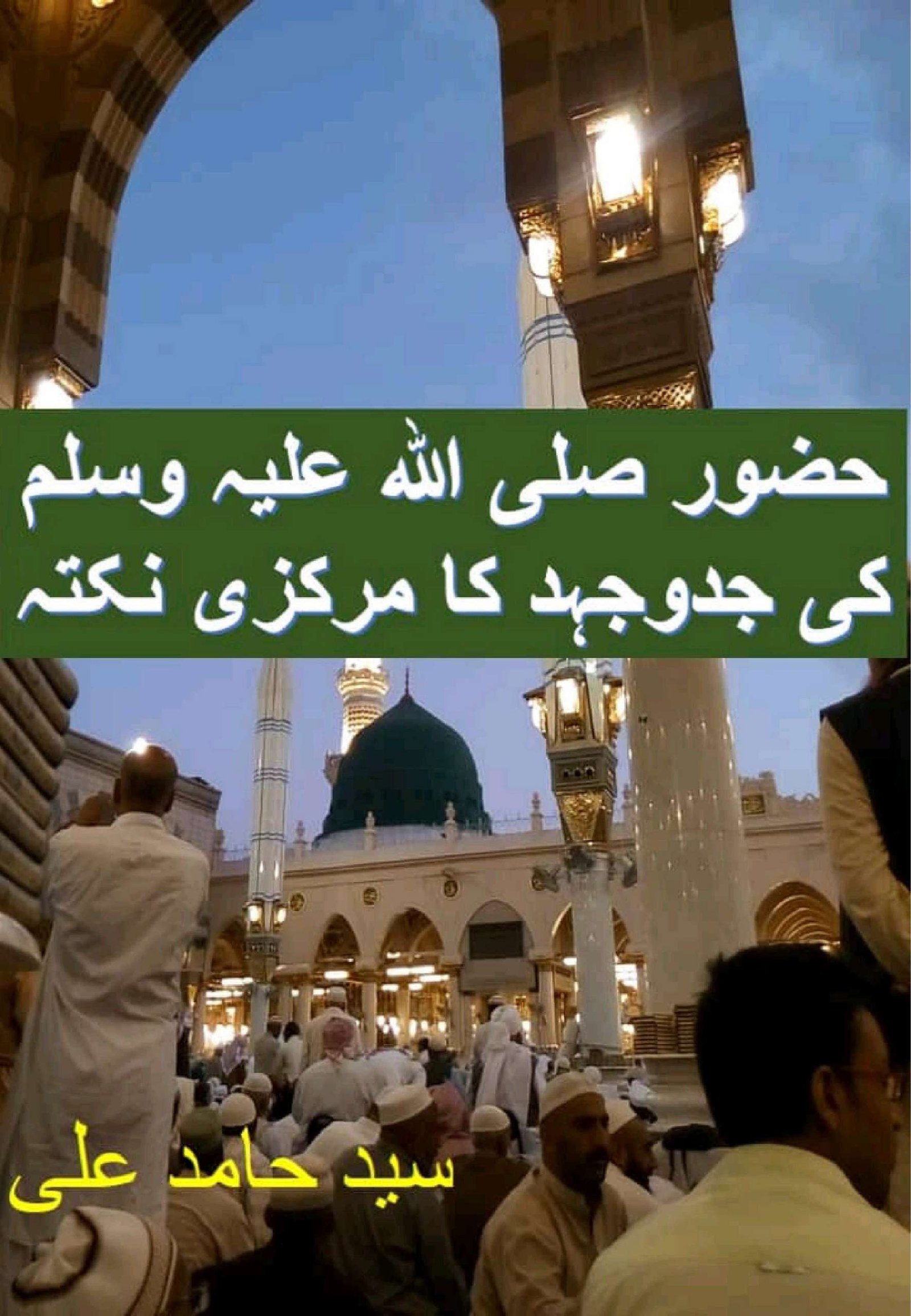– Mudabbir Dalal (B.E. Electronics, Pune University)
This book is written by Sayyed Hamid Ali, one the main scholars of Jamat e Islami Hind. In this book, he has elaborated on the central theme of the Prophet’s (P.B.U.H) mission. He writes that it is important to learn and understand the Prophet’s (P.B.U.H) mission and follow it. He asserts that there are different interpretations of the Prophetic mission. Four interpretations are prevalent in this matter:
- To make people servants of Allah.
- To call people to the religion of Allah and spread it.
- To call people for the success of the hereafter.
- For the religion of Islam to prevail on this earth.
He analyses these interpretations:
1. “And I did not create the Jinn and Mankind except to worship Me.” (51:56). “O my people, worship Allah; you have no deity other than Him” (7:59,65,73,85). This was the only dawah given by the Prophets to become servants of Allah and worship Him alone. But worshiping Him does not mean just performing acts like Namaz, Zakat, Hajj etc. alone. In the span of life, Namaz is just for some time, we perform Hajj once in a lifetime and fasting is followed for one month every year. So, if we take worshiping just as rituals, how can we spend our entire life worshiping? Hence, in the above ayah worshiping doesn’t mean just performing these acts, but the entire individual and collective life should be molded in the mold of Allah’s will. This was the main purpose of sending prophets and this was the struggle of the Holy Prophet (PBUH).
2. The second interpretation is to call people to Allah’s Deen and spread it. But what is this religion and what is its scope? Is it only limited to acts of worship, society morals and personal law or does it cover the whole life? Does it not include replicating the movement in the Prophet’s life where the call towards Allah’s Deen was limited at the beginning and later it was widened? Qur’an instructs “Say, surely my prayer, my sacrifice, my life, and my death are all for Allah—Lord of all worlds. He has no partner. So, I am commanded, and so I am the first to submit.” (6:162-163). It shows that religion is not limited to acts of worship. Ummah understands that the religion that was brought to us has a wider vision to expand and establish it, to the state where the Ummah can live freely and practice the religion according to the guidance of Shariah. In this context, the whole scheme of Prophet Ibrahim (PBUH) comes to light. The prayer of Him was: “O Lord! Raise up a Messenger from their own people who will recite your verses to them, teach them the Book and wisdom and make their lives beautiful.” Hence, the first thing that Prophet (PBUH) did when he reached Madina was to establish an Islamic state and run it.

Worshiping Allah, Calling People towards Islam and the Success of the Aakhirah are all linked to the Establishment of Deen
3. The third interpretation is to call people towards the success of the hereafter. But does this mean that people turn away from the problems of this world, and just focus on the hereafter? When the problems that Ummah is facing are brought before such people, they turn a blind eye towards them and instead choose to focus on the hereafter, as if the Hereafter is something separate from this world. The Islamic concept of the Hereafter is such that the whole life before and after death is one. Death is a temporary gap in the middle of life and a gate to the next life. This same life of ours will come before us in the hereafter. According to the Qur’an, the actions of man in this world determine his place in heaven or hell. The actions here will be multiplied a thousand times there. And we should strive to achieve the highest place in paradise as suggested by the Prophet (PBUH), i.e. for Jannat al Firdaus. But how to get the highest position in heaven? By worshiping at home only? If so, then why did the Companions fight? Why did the Holy Prophet (PBUH) shed blood? People will say that it was because the polytheists did not believe. But why did they clash with Caesar and Kisra? And then why did they continue to spread further? So, it is known that the concept of success in the hereafter in Islam is not like Buddhism and Jainism, that man’s nirvana and mukti is through man being cut off from the world. According to Islam, it is by living in this world, fulfilling all the responsibilities of it, including the responsibilities of the government, that one gets the success of heaven and the hereafter.
4. Coming to the last interpretation, i.e. to establish the Deen on this earth, as mentioned in the Qur’an “Have faith in Allah and His Messenger and strive in the cause of Allah with your wealth and your lives. That is best for you, if only you knew.” (61:11) Hence, one should strive for the establishment of Deen. Some people say that this objective was only till the Prophet (PBUH) was alive, but the instructions of the collective life that remain a part of Qur’an and Sunnah which are not being implemented, are they just for theoretical understanding? Do we not have the responsibility to try and inspire the world to follow them? Some people also believe that leadership will miraculously come from Allah, that we sleep at night and when we wake up, we will see a just and noble Islamic leader. That’s not how things work. Even the Holy Prophet (PBUH) did not get this government as a reward, but only after a hard struggle and sacrifice. Hence, we can conclude that spending life in Allah’s worship, spreading the religion and success of hereafter are all linked with the establishment of Deen, which was the central theme of Prophet’s (PBUH) mission.

